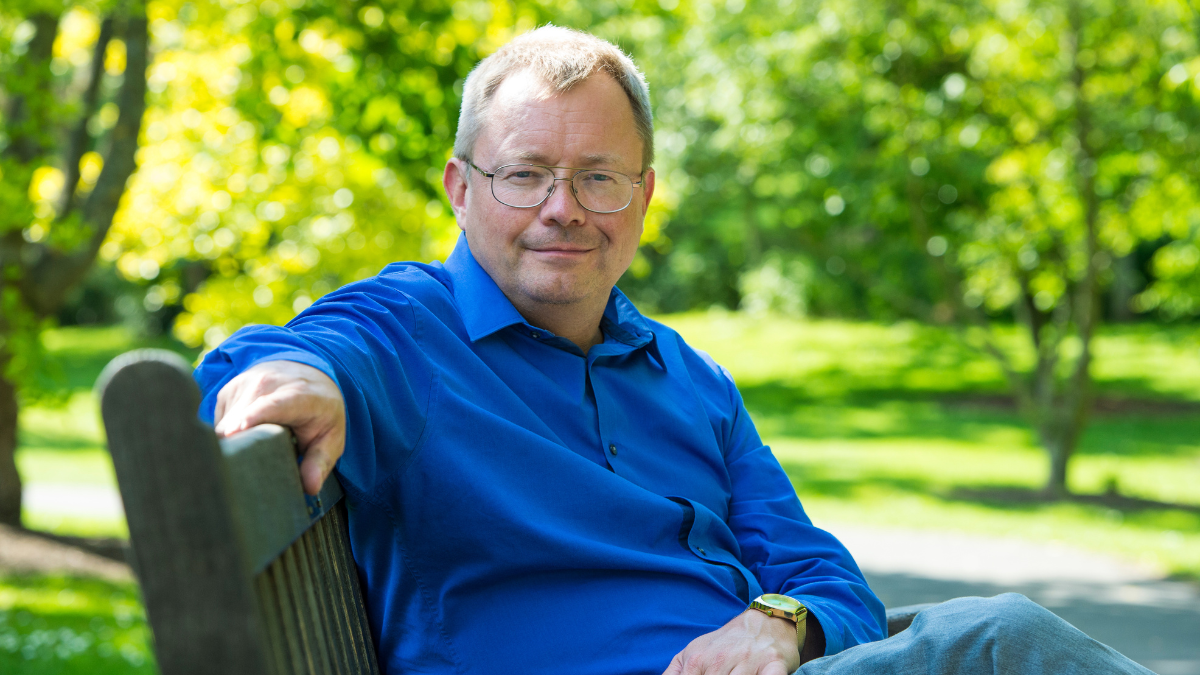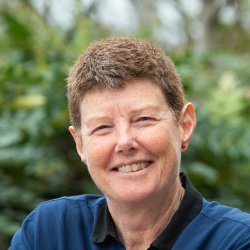Malcolm von Schantz (24 May 1966 – 24 October 2025)
Below is an obituary from Professors Debra Skene and Simon Archer, honouring the life and work of Professor Malcolm von Schantz, who passed away unexpectedly on 24 October.

Professor Malcolm von Schantz
It is with great sadness that we announce that our friend and former colleague, Professor Malcolm von Schantz, died unexpectedly in Brazil last Friday (24 October). He was attending the XVIII Latin American Symposium on Chronobiology in Maceió, Brazil.
Following two post-doctoral appointments in the US and the UK, Malcolm joined the Research Group of Professor Josephine Arendt at the University of Surrey as a Lecturer in 1997. He brought his molecular biology knowledge to the Chronobiology group at an exciting time for the discipline, when clock genes were being identified. Early pioneering work (Medical Research Council and Biotechnological and Biological Sciences Research Council funded) investigating clock gene polymorphisms in humans added another important dimension to Surrey’s circadian and sleep research and had a lasting international impact.
Malcolm received his Professorship in 2017 for his significant contribution to chronobiology research and his administration duties within the Faculty of Health and Medical Sciences as Associate Dean International. Malcolm was passionate about building international collaborations and received funds to successfully establish multidisciplinary projects in Brazil and South Africa. He took a year’s sabbatical in São Paulo to cement these connections.
Malcolm left Surrey in 2021 to take up a Professorship at Northumbria University in Newcastle, where he was Deputy Faculty Pro-Vice-Chancellor (Research and Knowledge Exchange). He was actively involved in several clock/sleep initiatives, such as the Wellcome-funded Circadian Mental Health Network and work with the British Sleep Society on daylight saving. Malcolm was Chair of the Scientific Committee of the European Sleep Research Society (ESRS) and was a Fellow of the Linnean Society.
Malcolm loved Brazil and had many friends and colleagues across the country. It’s fitting that he enjoyed his last days in a place he loved at a chronobiology conference (that was suspended following his death).
On a personal note, Malcolm was one of a kind. Always enthusiastic, positive, and happy to share knowledge with colleagues and support his undergraduate and postgraduate students. In my own (Simon’s) case, I was one such post-doc colleague, and his support was invaluable in my own journey to becoming a Professor here at Surrey. He was kind and generous and had many friends from all periods of his life. He loved classical music and opera and loved to cook, eat and drink – readers of his Twitter and BlueSky feeds can vouch for this.
He was a world traveller (gold Lufthansa card) and one of our lasting memories will be his generous invite to a first-class airport lounge to join him in a pre-flight drink of champagne!
Malcolm was a well-loved character in chronobiology and sleep research and will be missed by his many colleagues and friends.
If you wish to share memories of Malcolm, please send your message to info@ebrs-online.org or directly to sonia.viteri@ebrs-online.org. All messages will be gathered and displayed on the European Biological Rhythms Society (EBRS) webpage dedicated to Malcolm’s memory.
Debra J. Skene and Simon Archer

